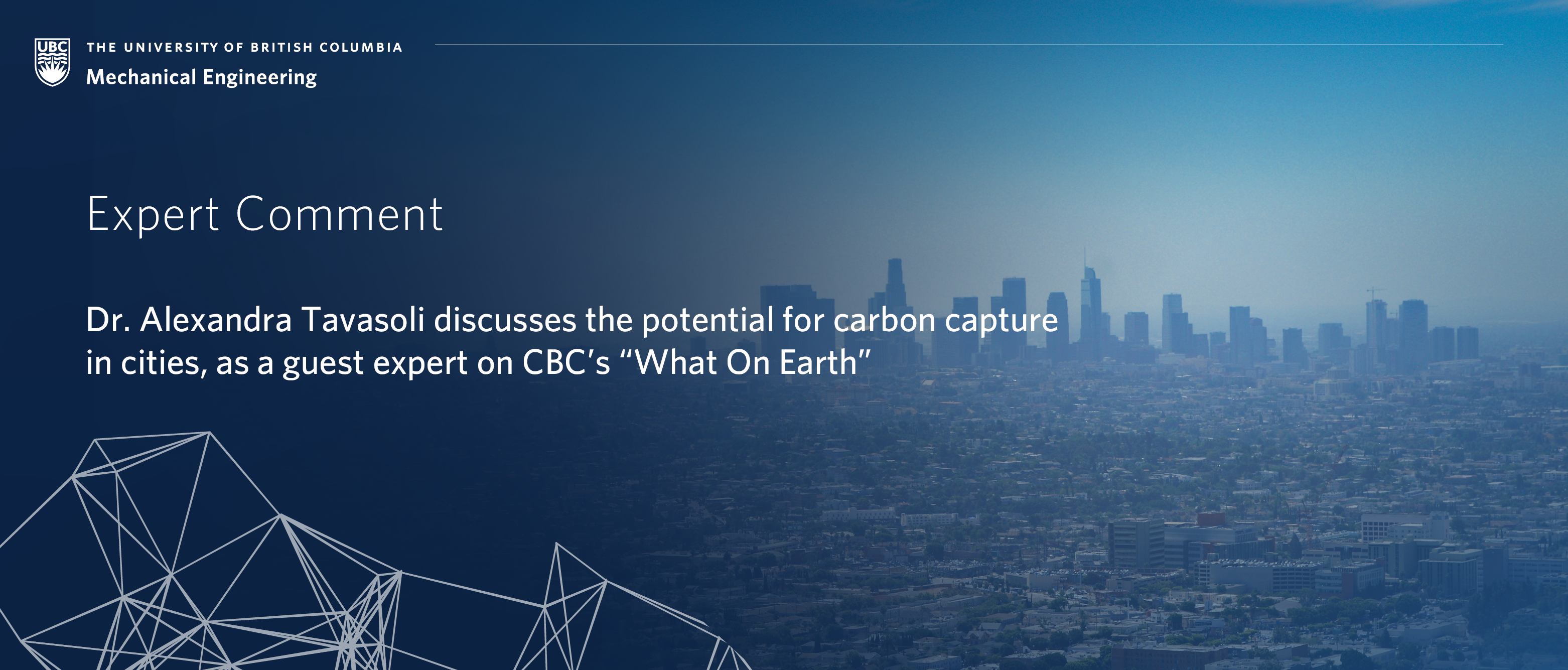
Dr. Tavasoli discusses the potential to strategically apply this technology by using it in areas where carbon is heavily produced: in cities. Many current carbon capture facilities are large installations located away from populated centers. She points out that smaller units integrated into everyday infrastructure – like a building’s ventilation system or a road tunnel – could be more energy-efficient and cheaper to run by finding and removing carbon emissions at their source.
“If you think about a bowl of M&Ms where there are fifty brown M&Ms and two orange M&Ms, it’s going to take you a lot of time to find an orange M&M, then it would if there were half orange M&Ms and half brown M&Ms,” she says. “In the same way, if there are less carbon dioxide molecules in the air it’s going to take you more energy to separate them out. In urban areas, because there is so much human activity and so much driving, there’s a huge amount of carbon dioxide emissions.”
She also addresses the question of what happens to excess carbon when it’s removed from the atmosphere. Currently, Carbon Capture Utilization and Storage (CCUS) technologies are used to offset the oil and gas industry, curbing emissions but utilizing the stored energy to produce more fossil fuels. Dr. Tavasoli’s research explores other uses of waste carbon – such as curing concrete, creating battery casings or making adhesives for solar panels – enabling future industries to be less reliant on fossil fuels.
Listen in at minute 26 for the start of this discussion, and hear the full interview with Dr. Tavasoli starting at 38 minutes.
Photo of Los Angeles, USA by Piermario Eva on Unsplash.